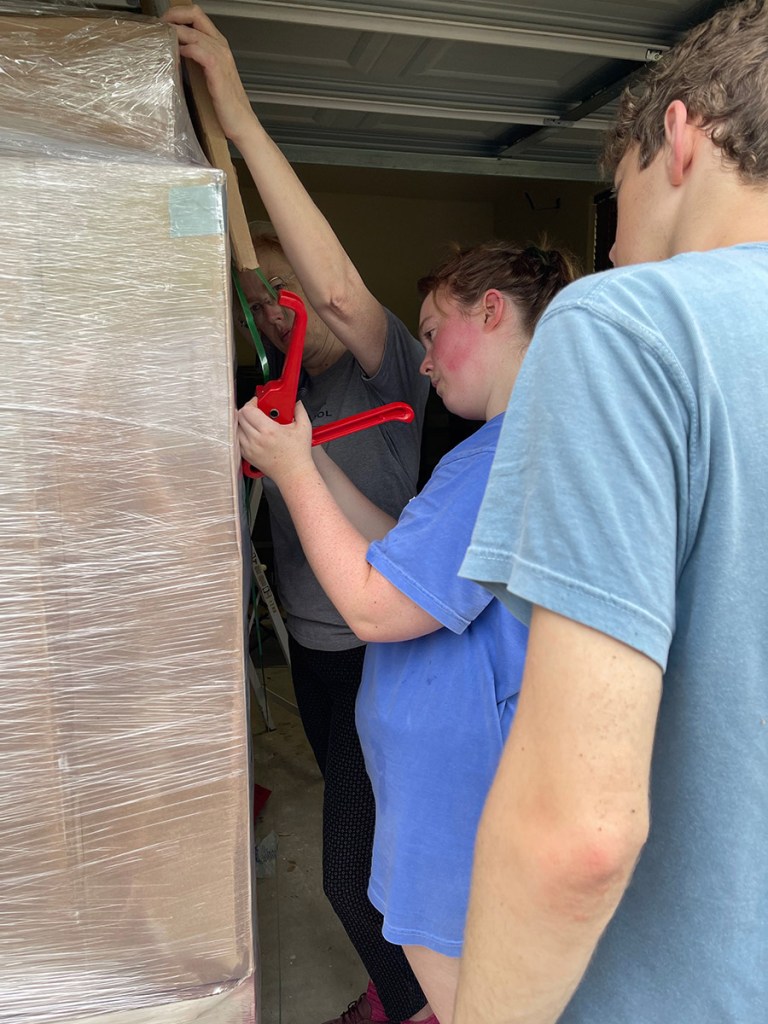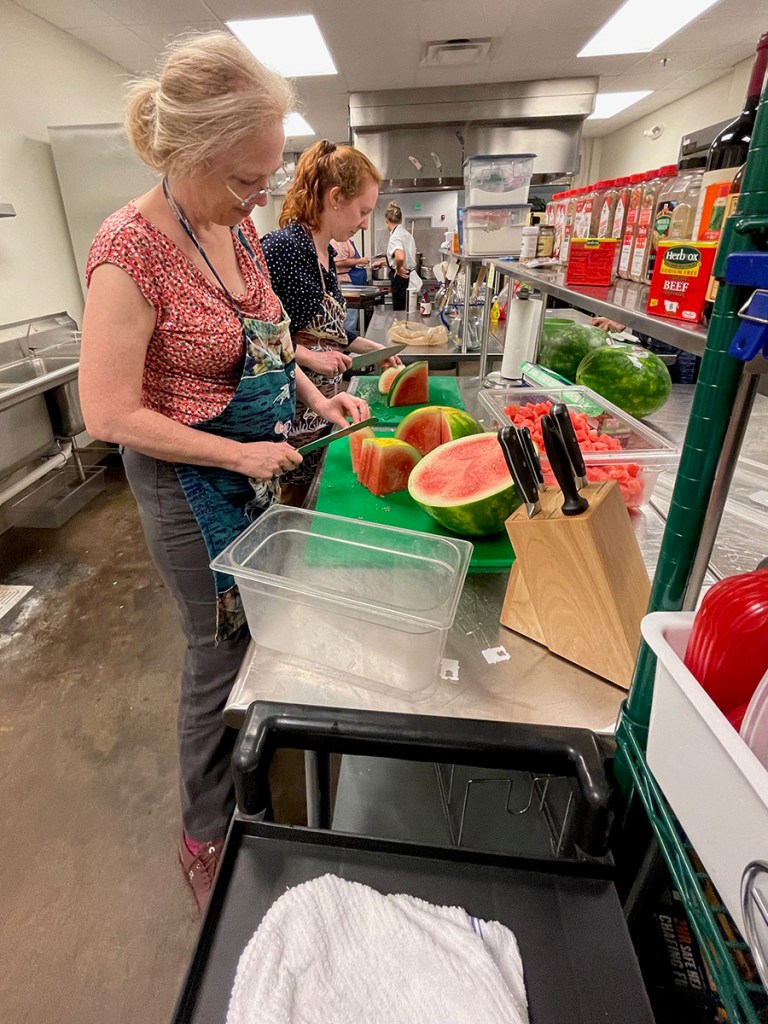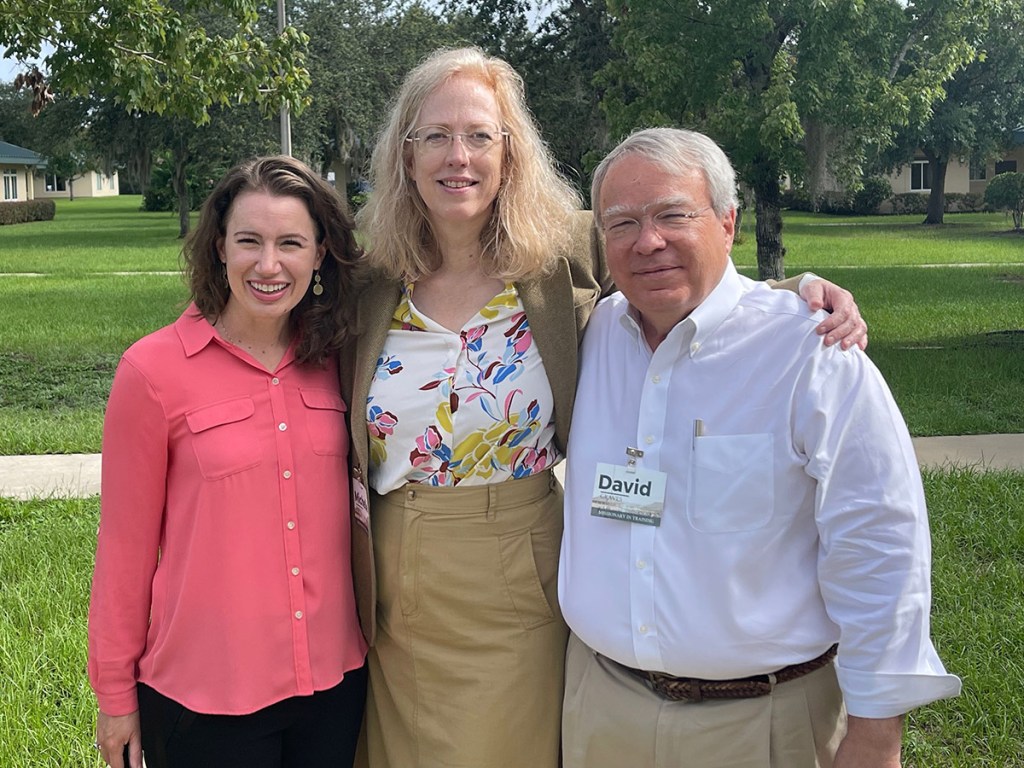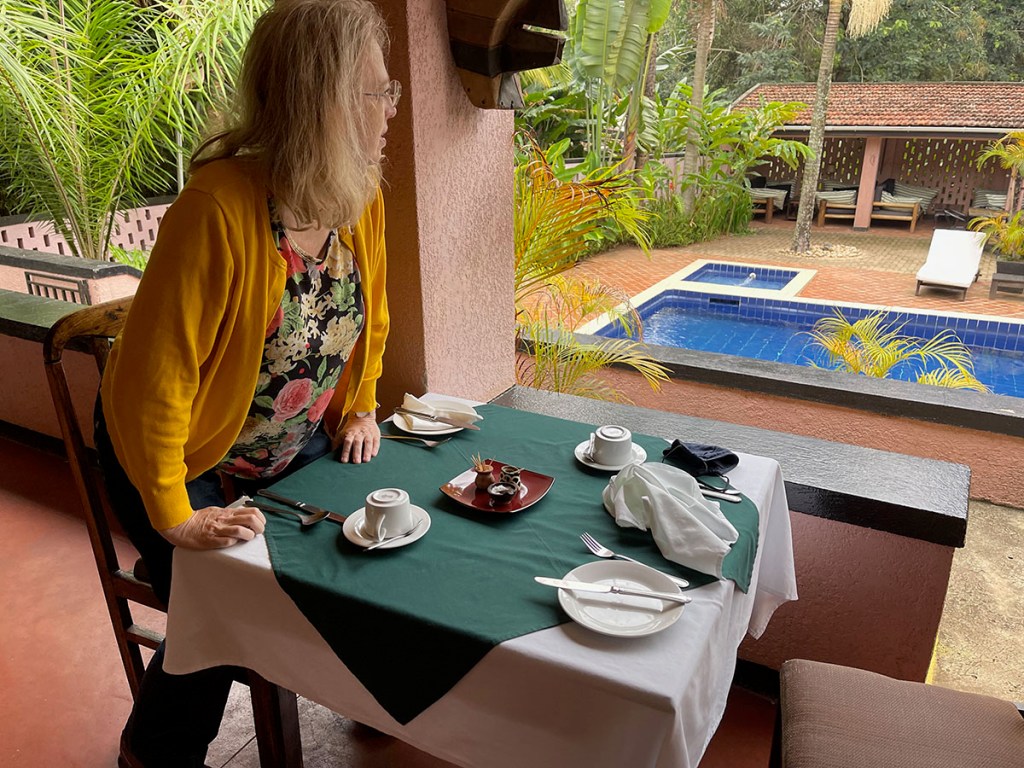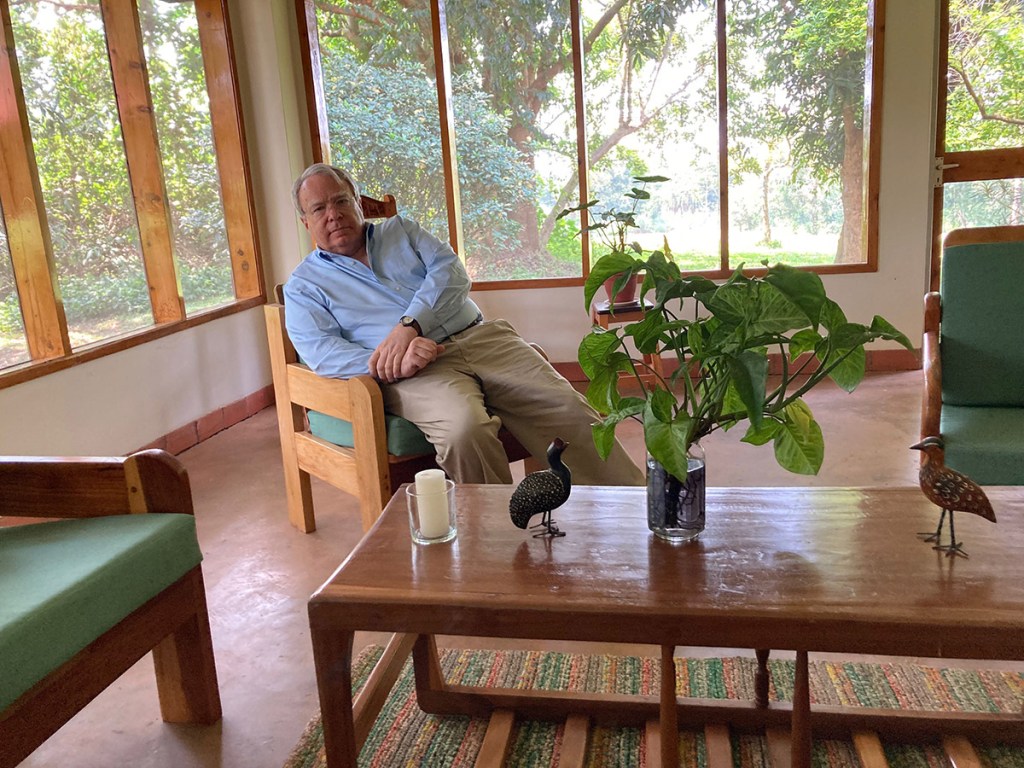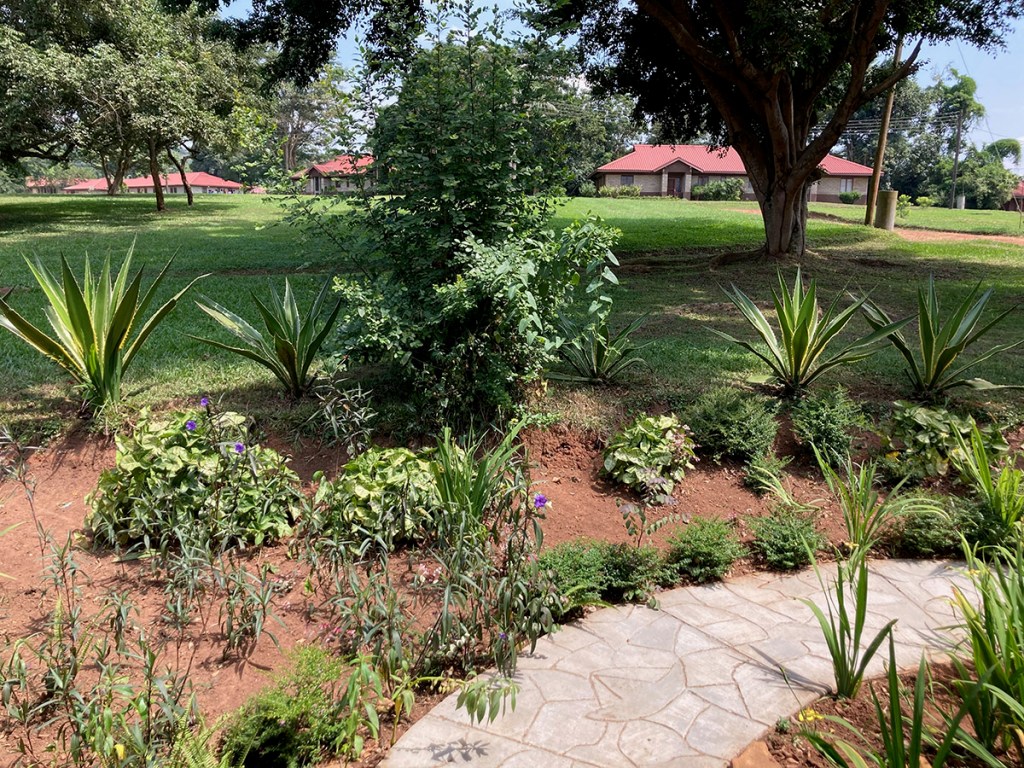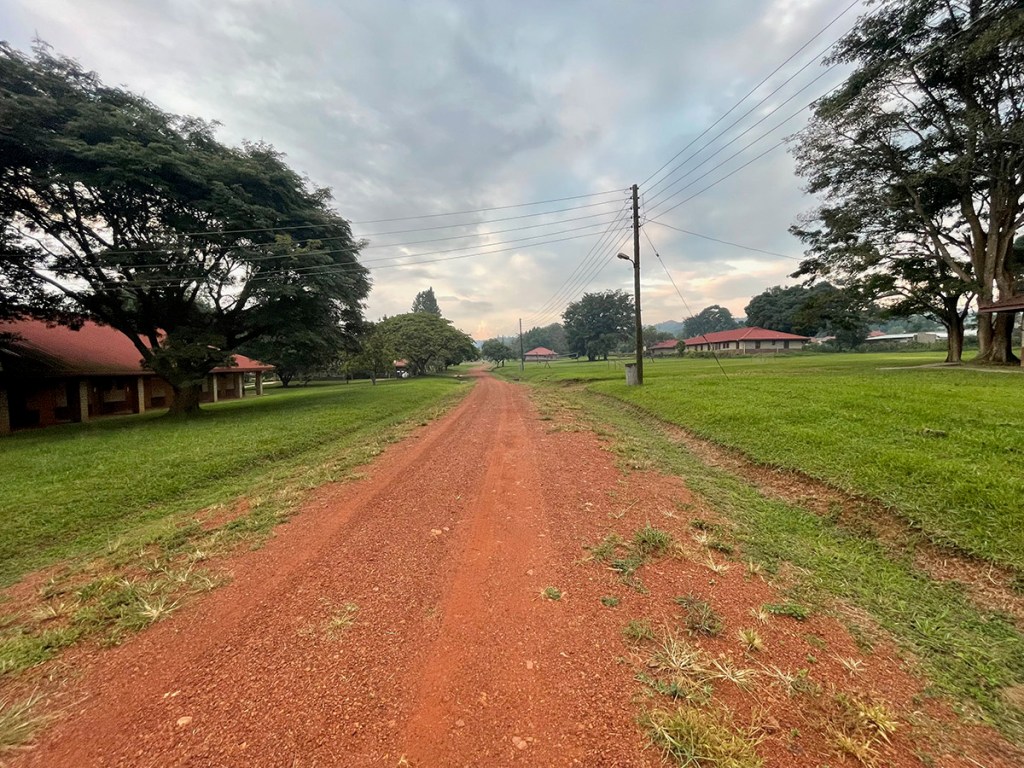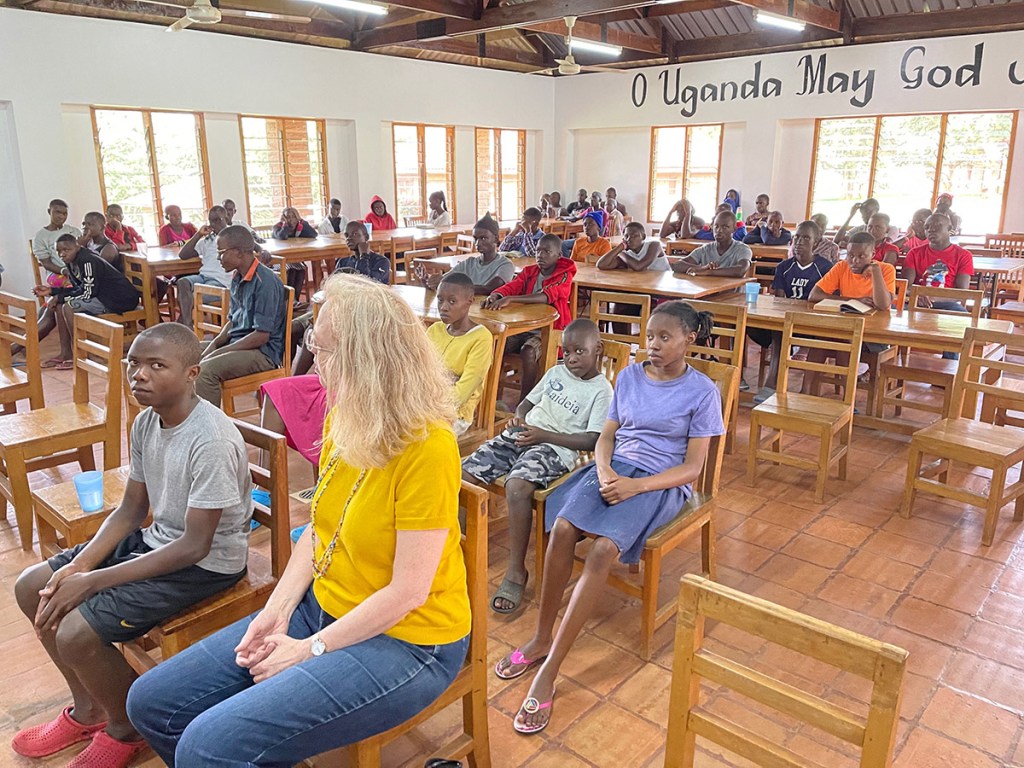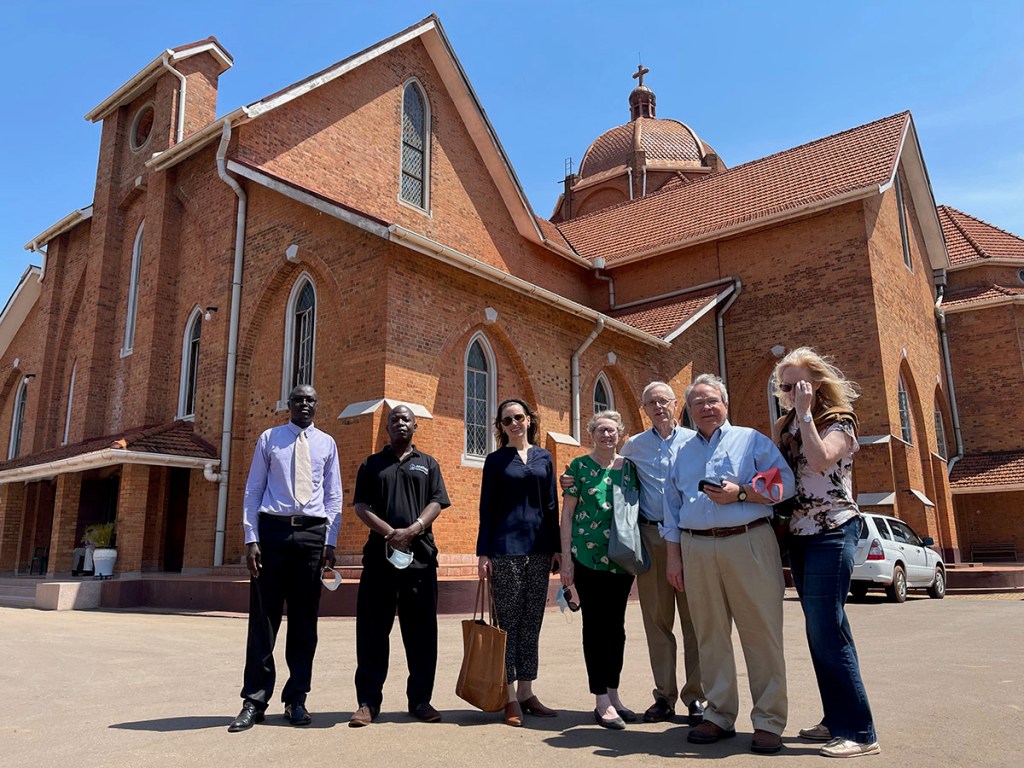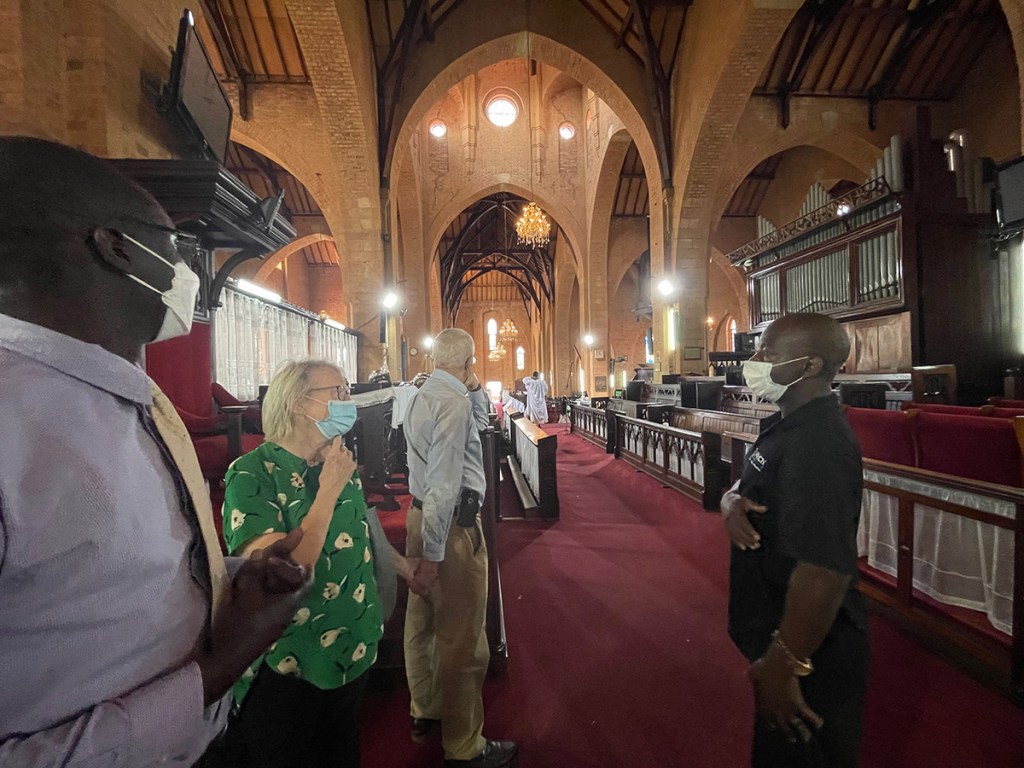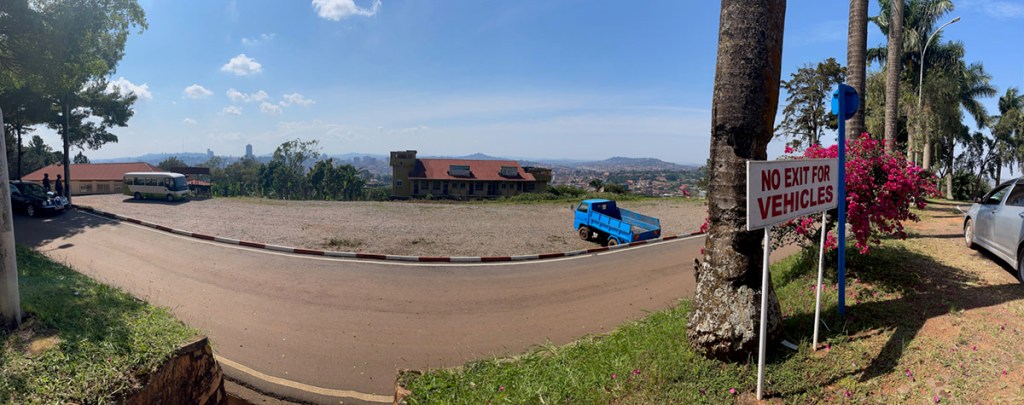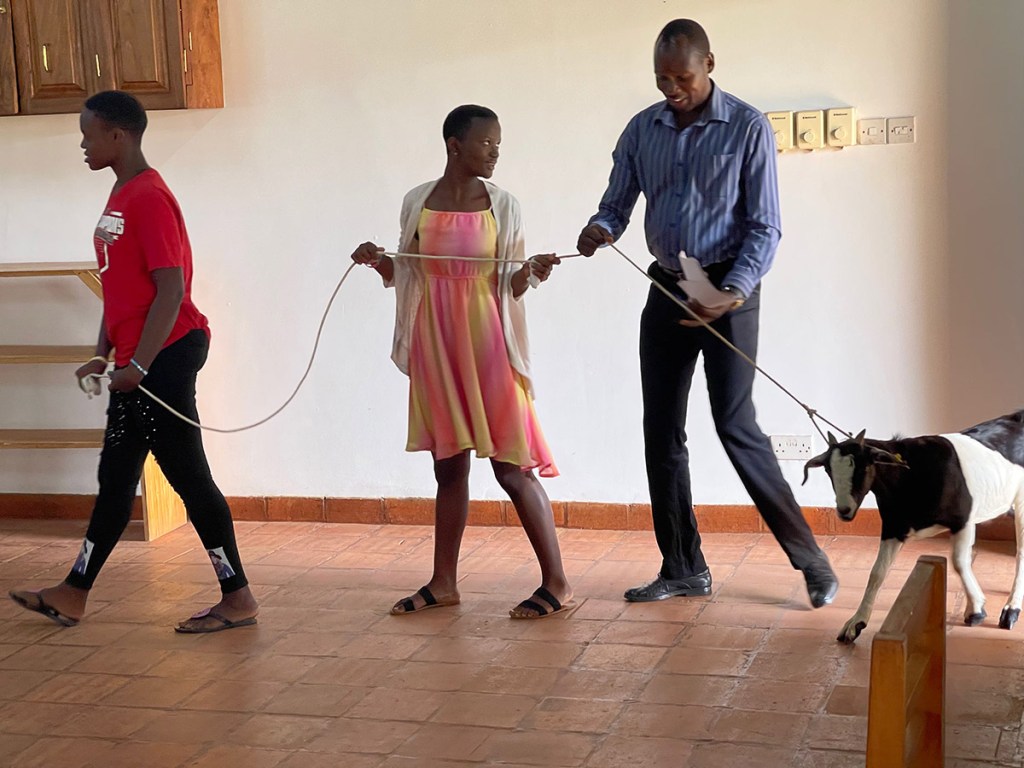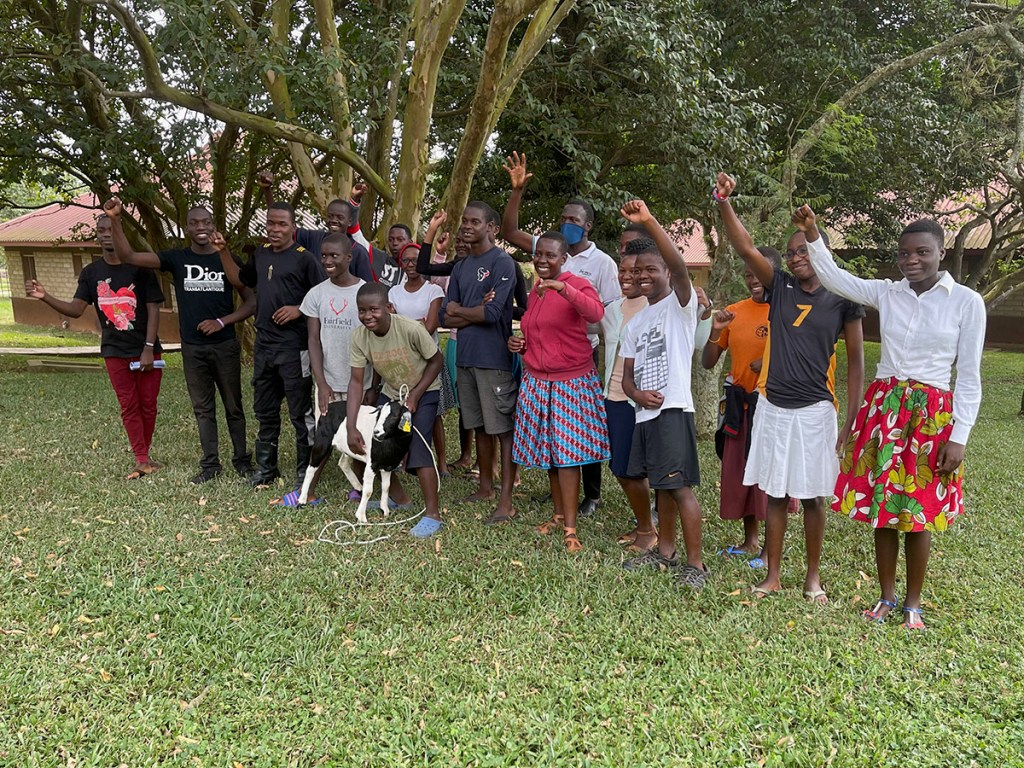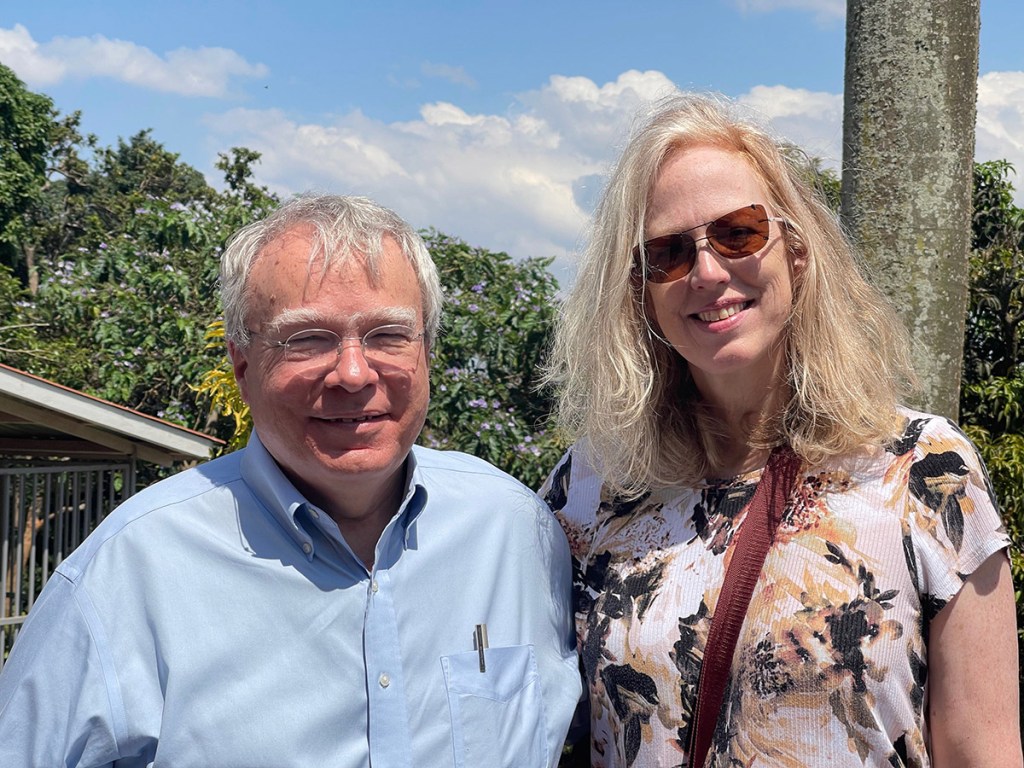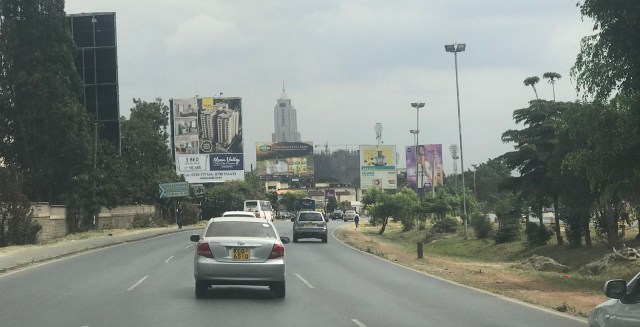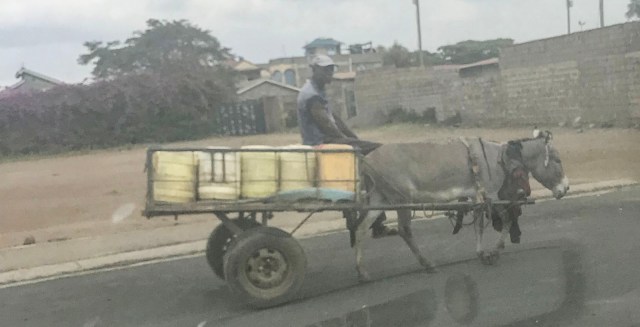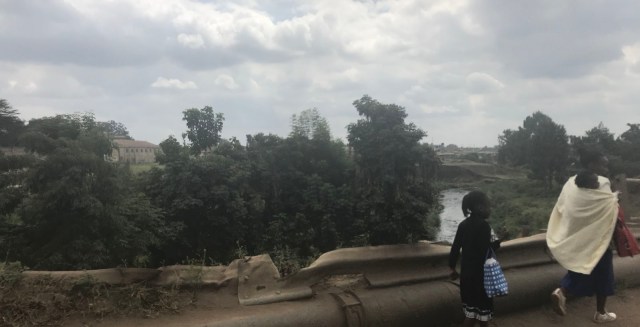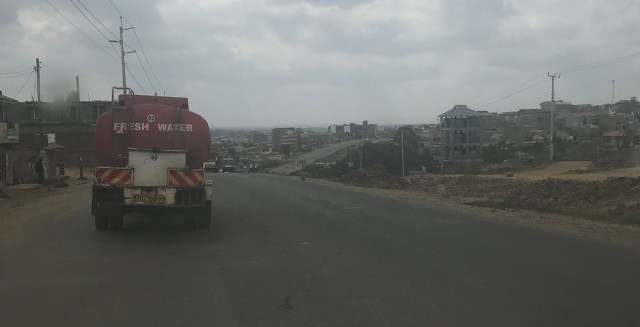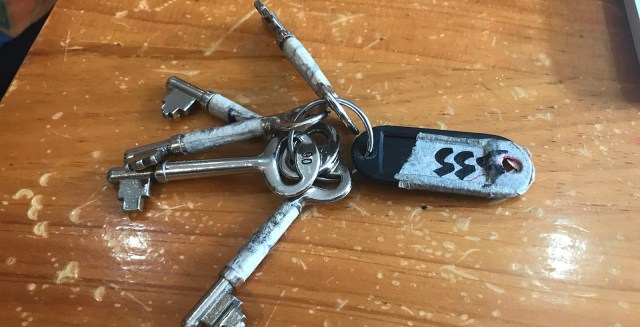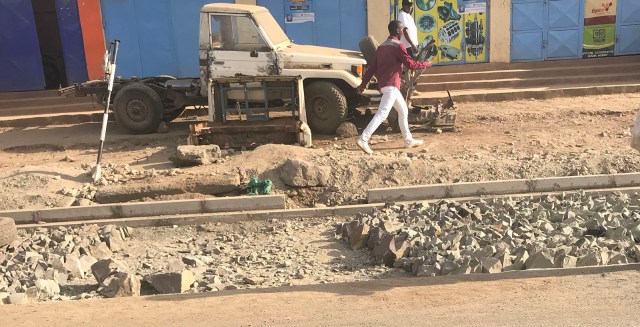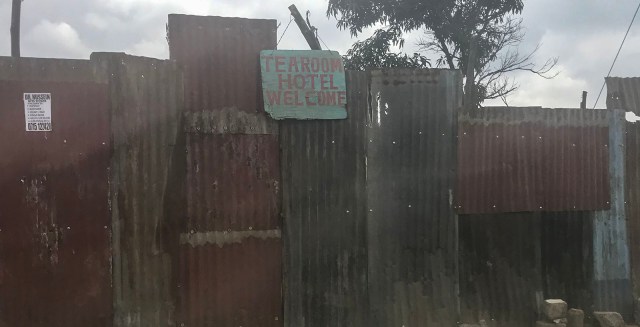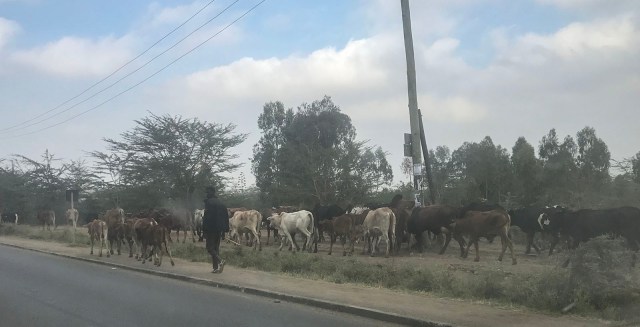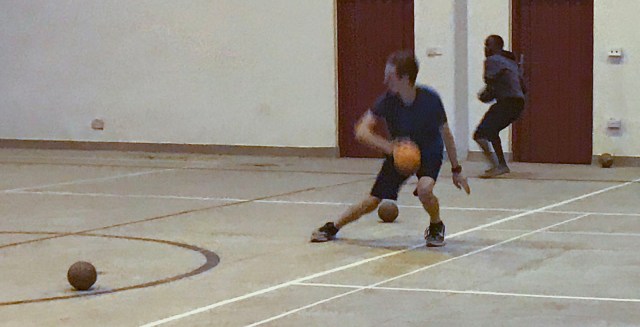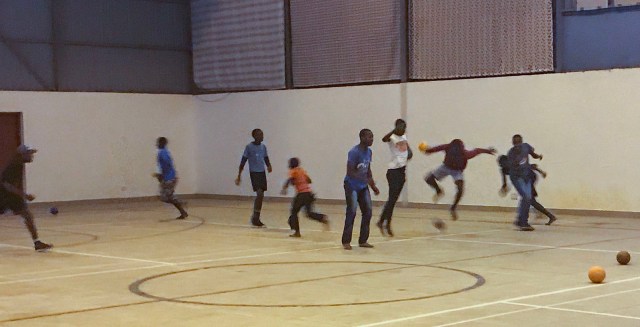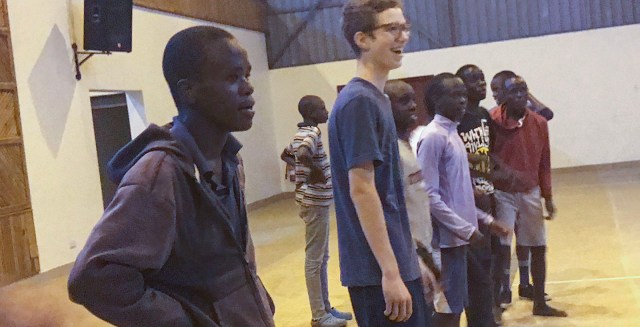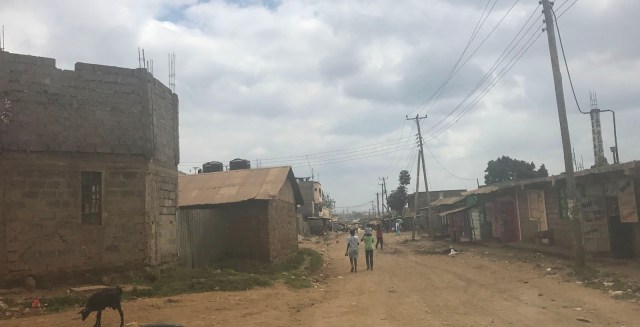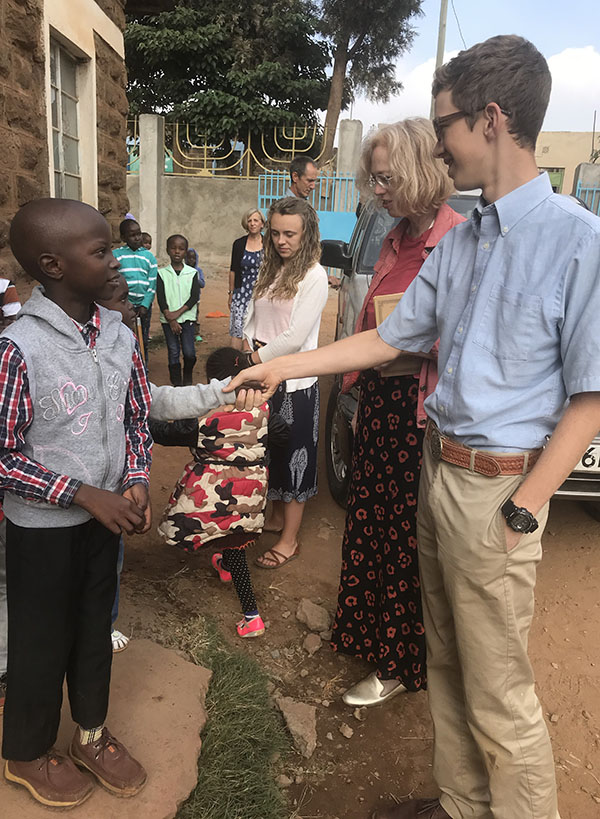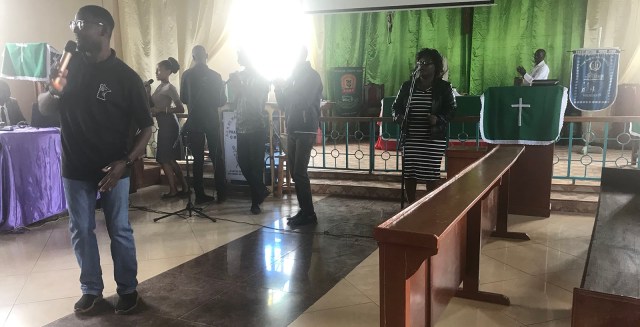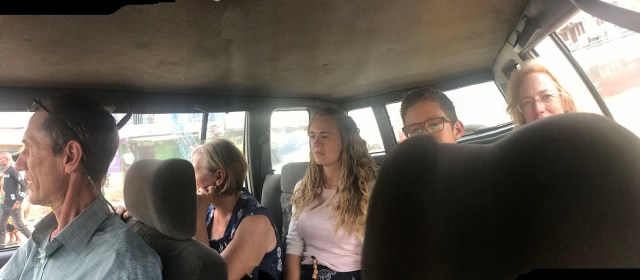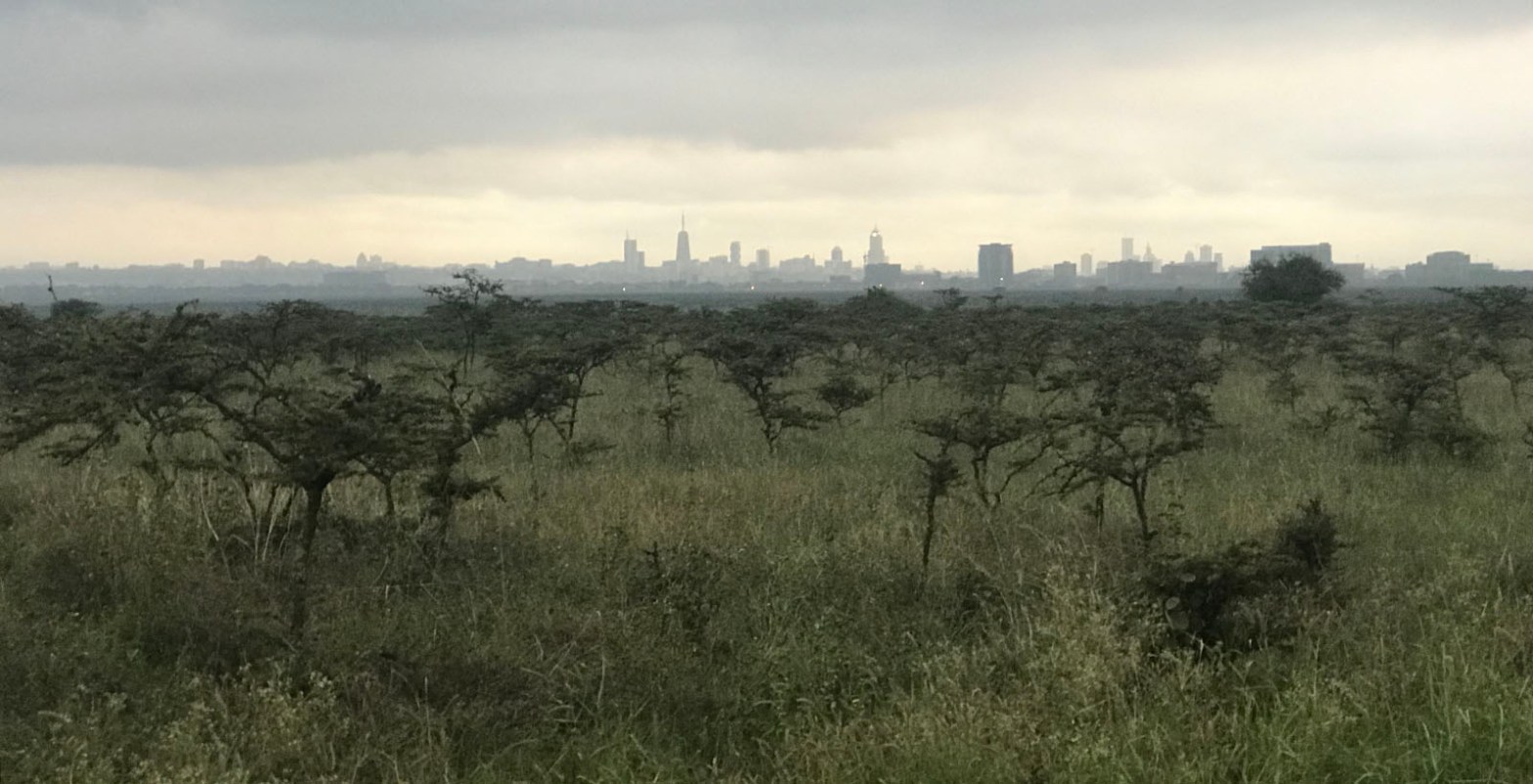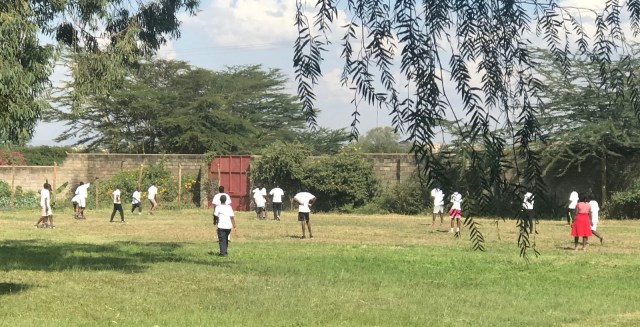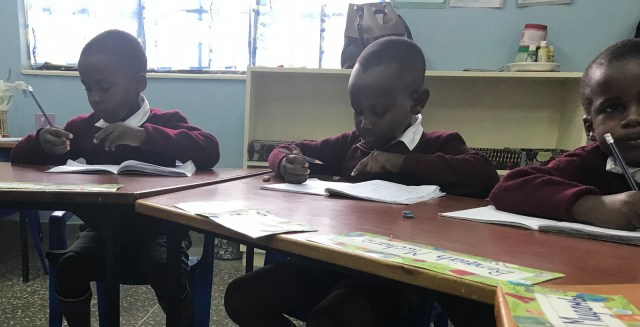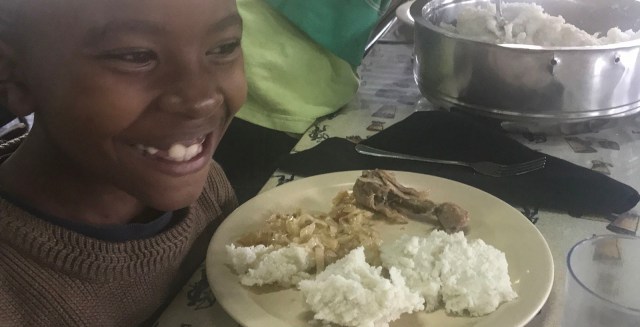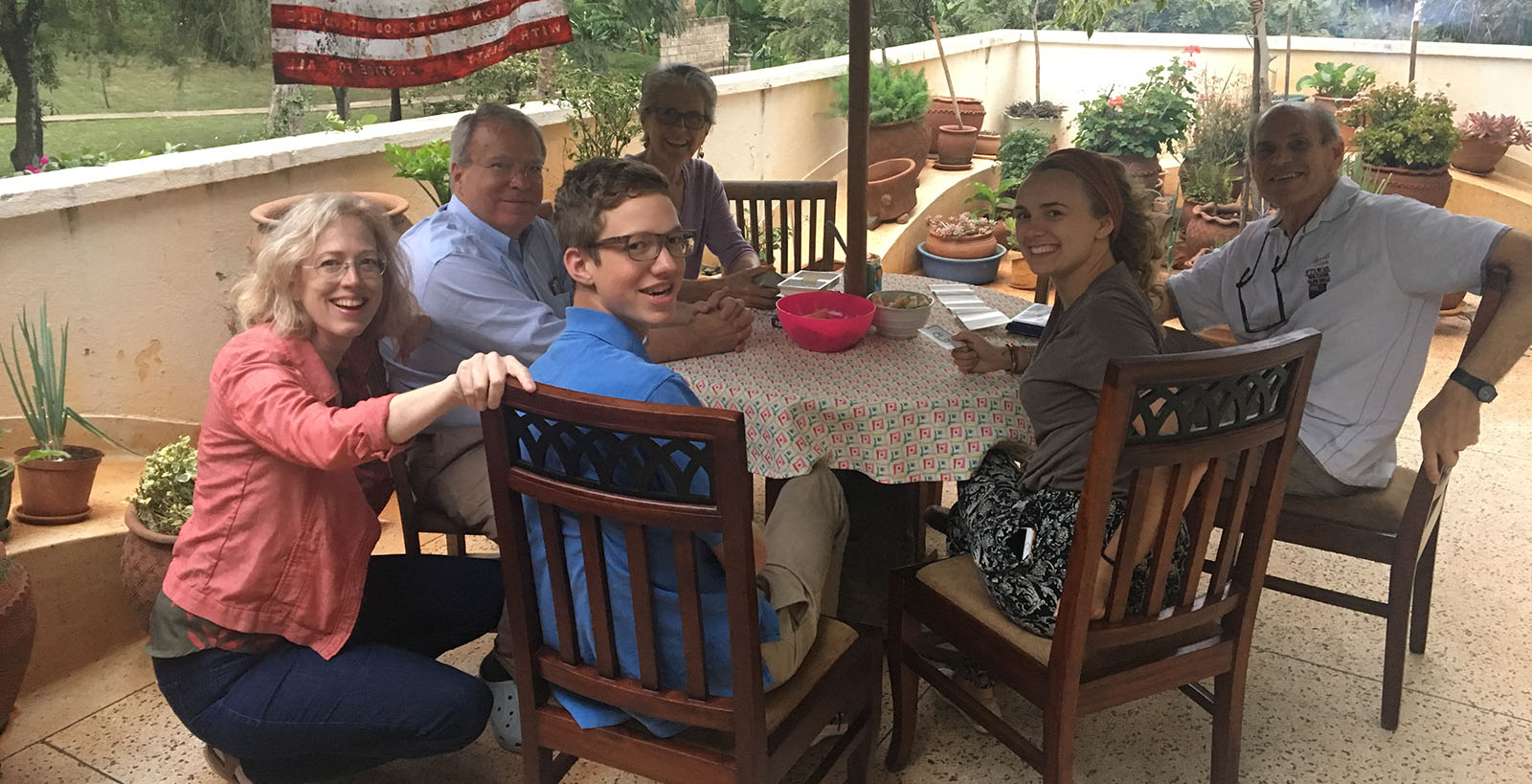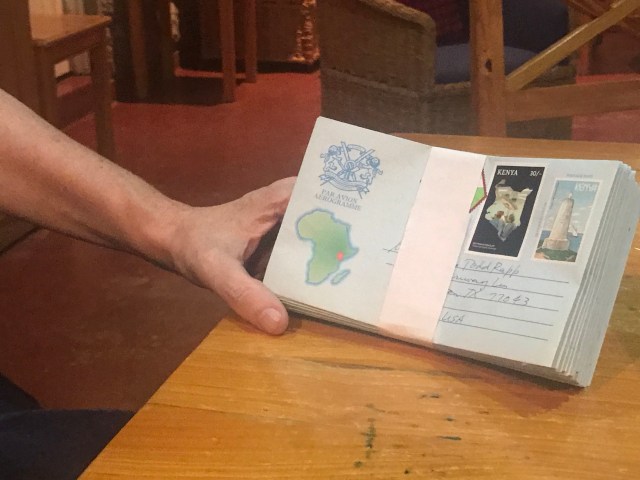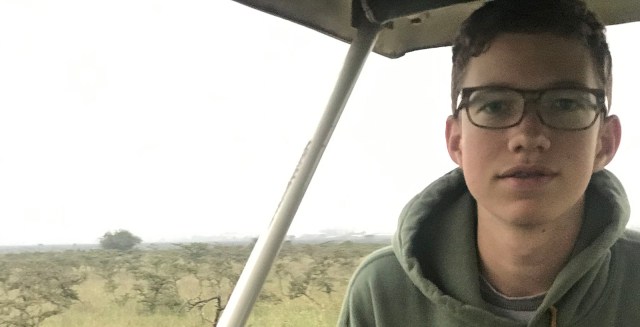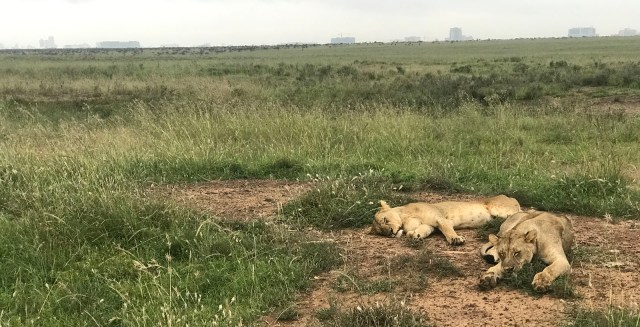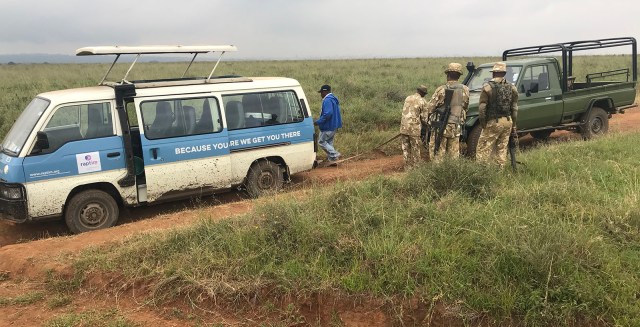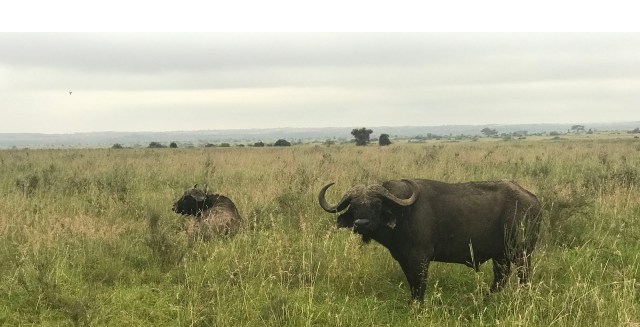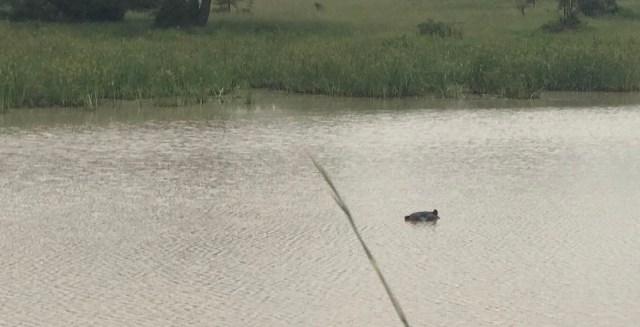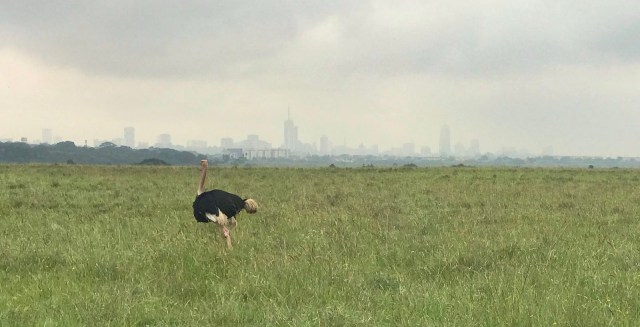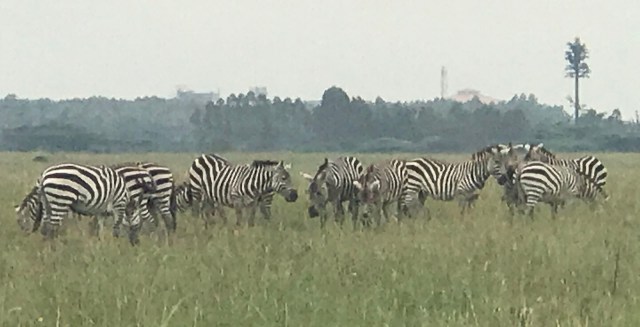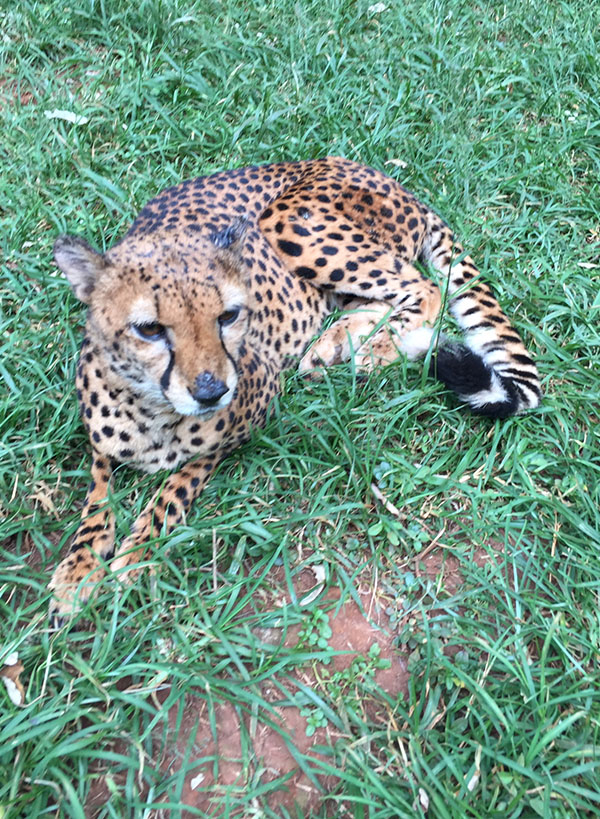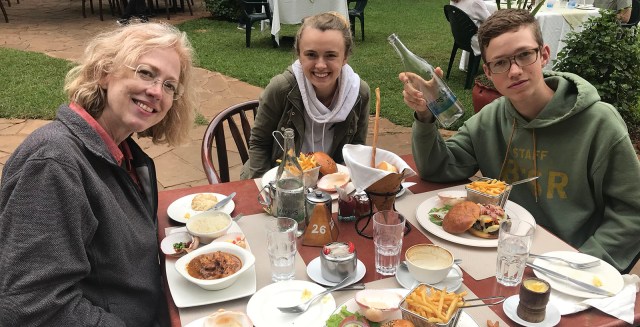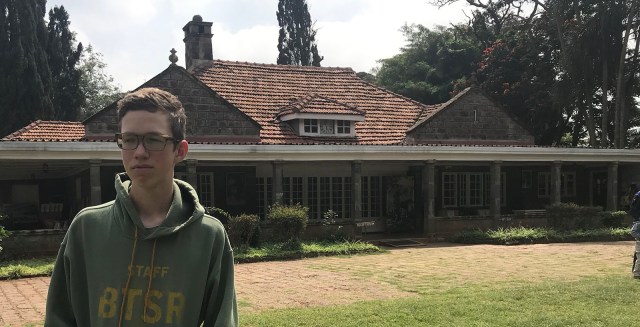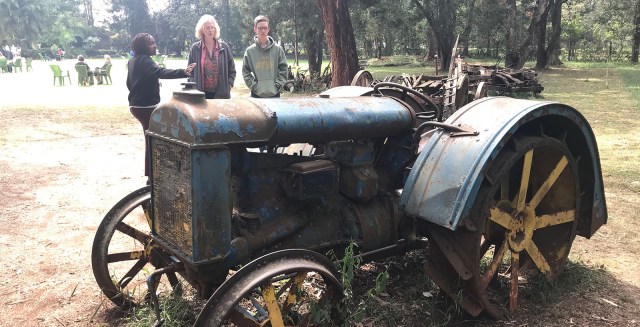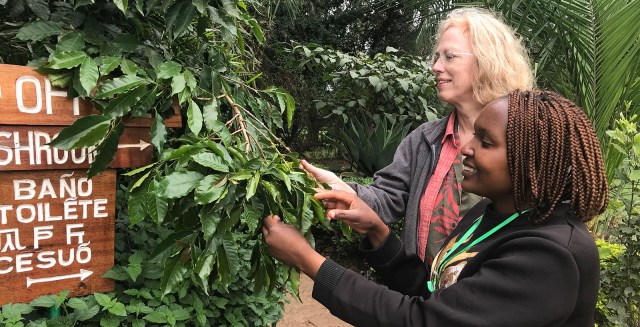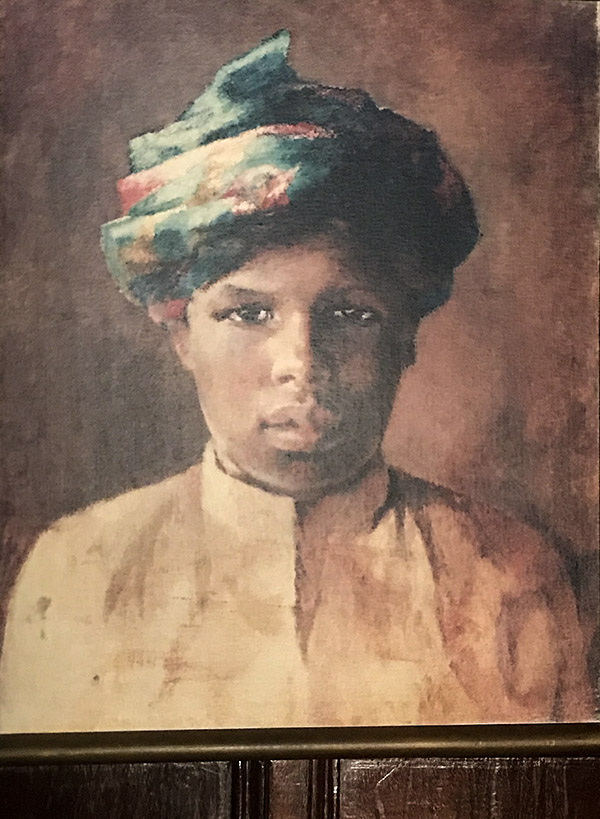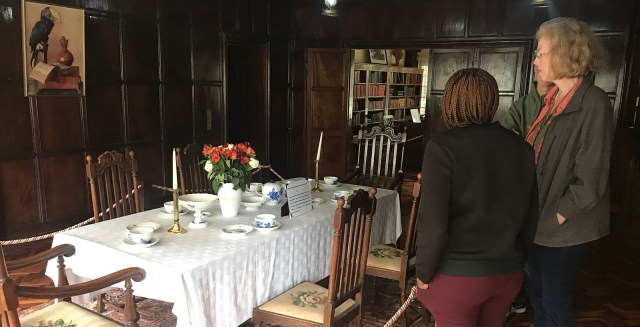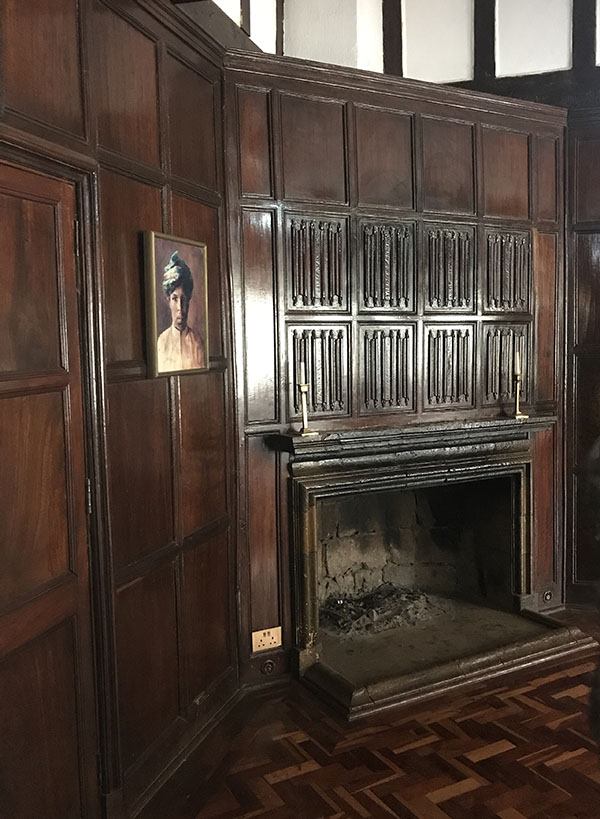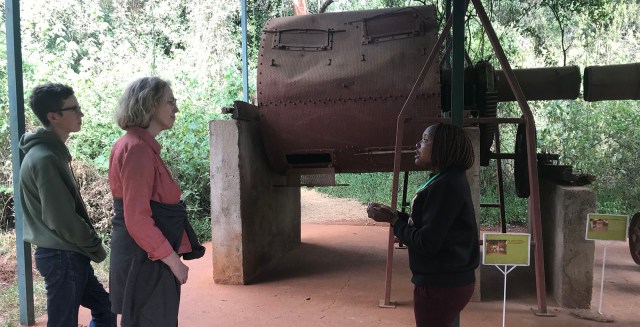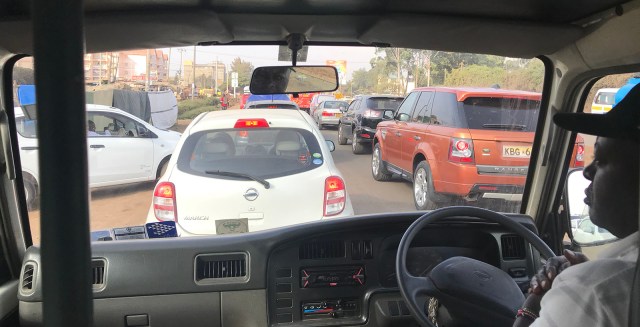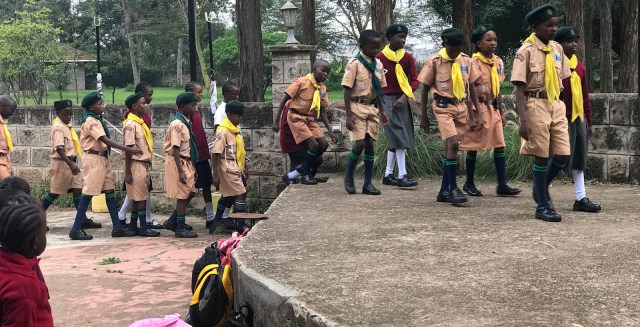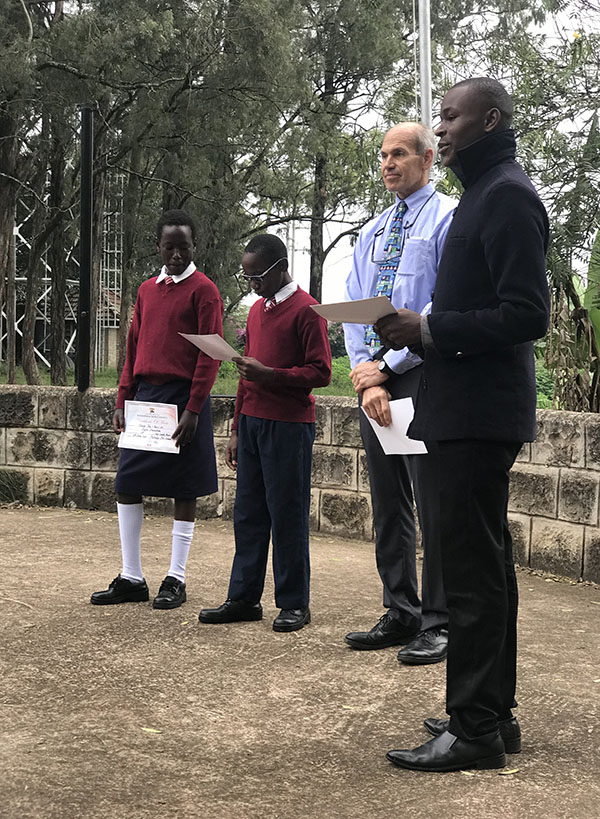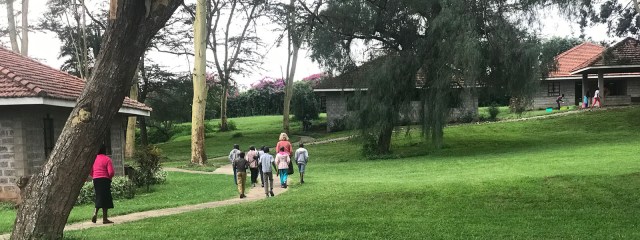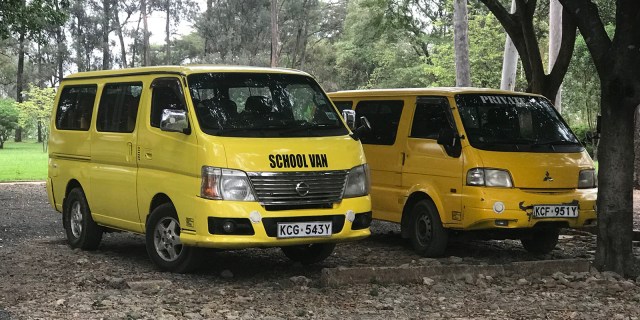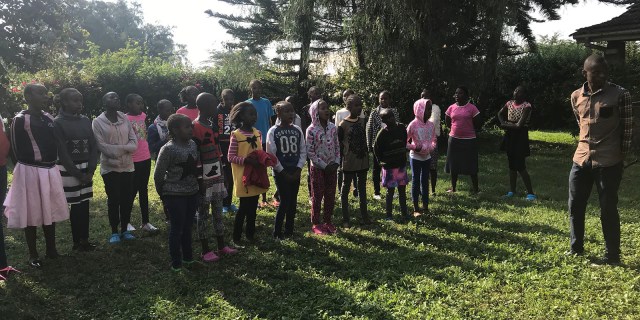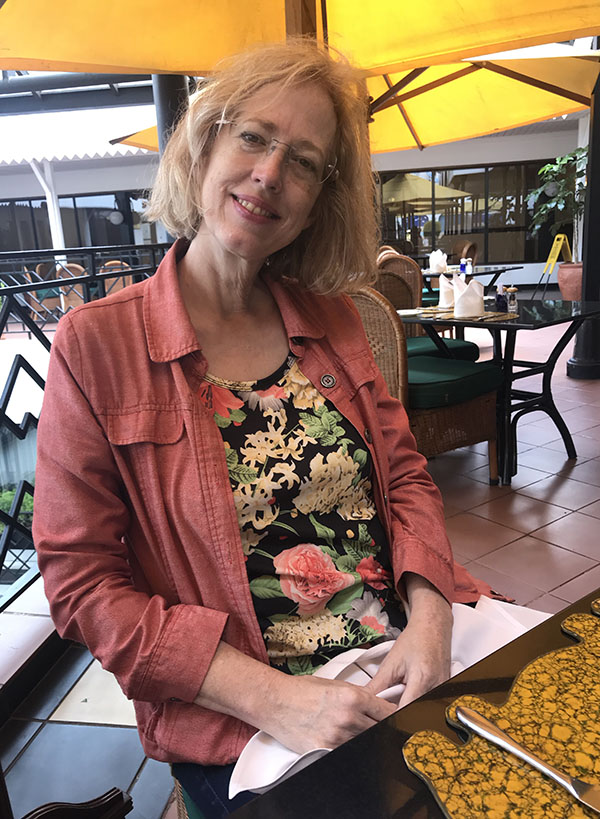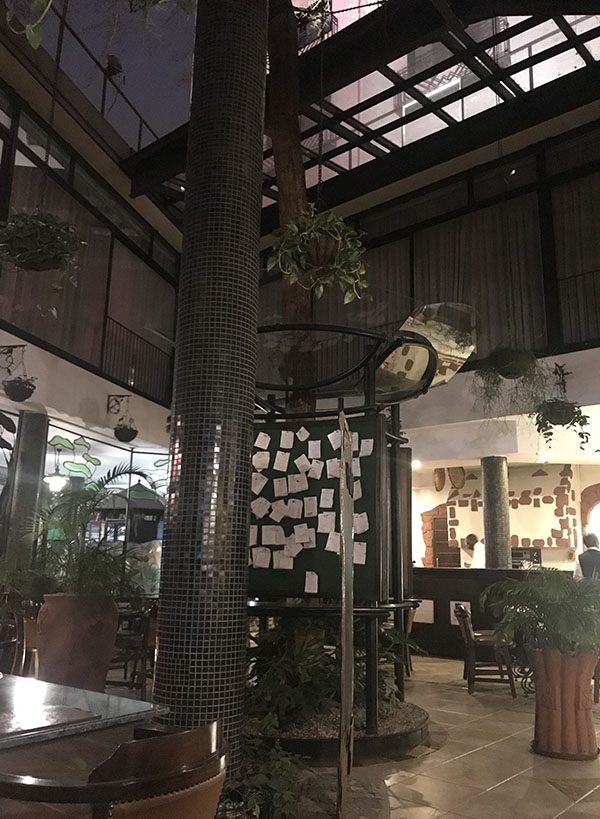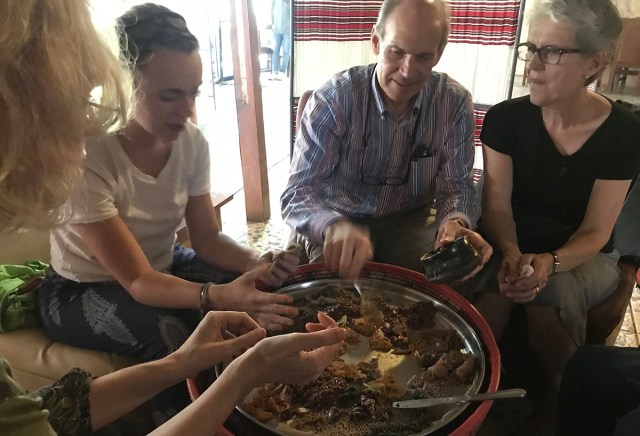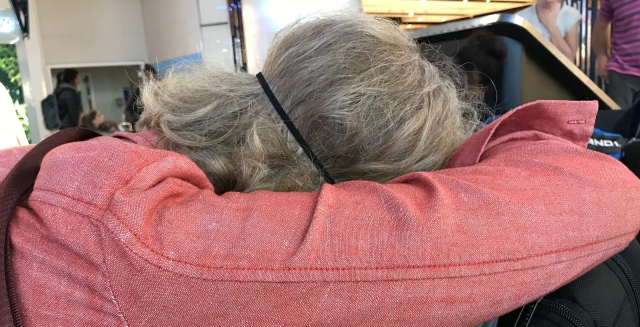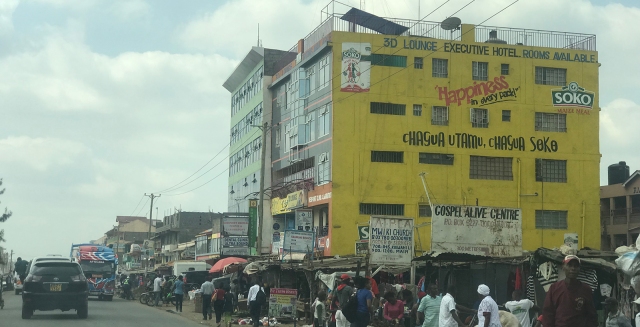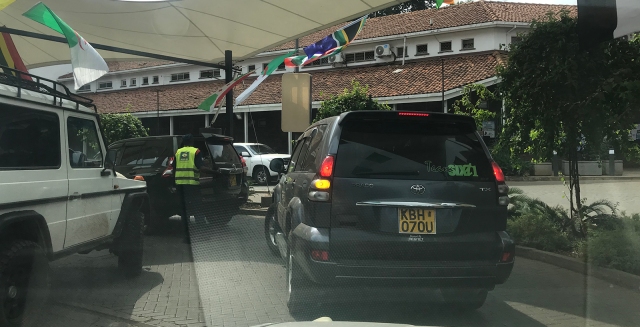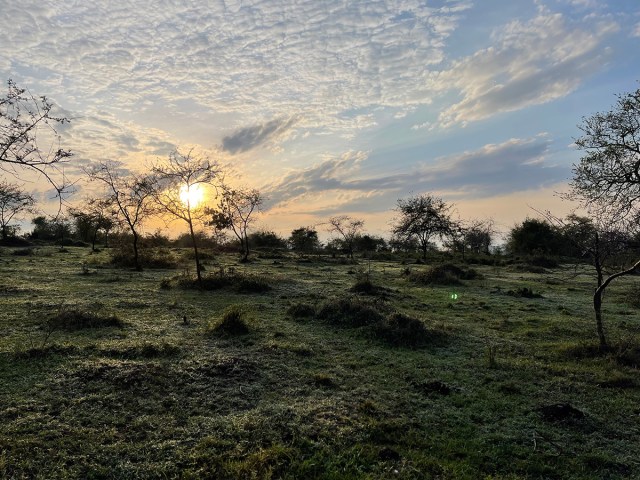
Sunday, September 12. We’ve been in Uganda for more than two months — and it looks like I need to practice doing these blog entries a little more frequently. My only excuse is that we’ve been busy.
Around the beginning of August, the government eased the lockdown, allowing people to travel more and many businesses to reopen, although schools and churches remain closed.
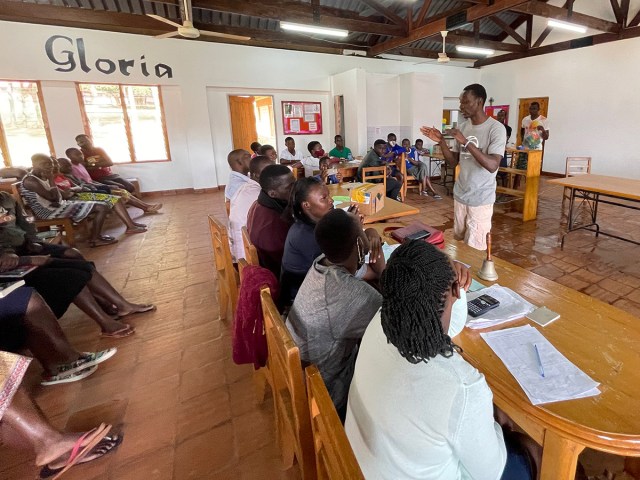
We began a new session of enrichment activities for our 75 resident students including David teaching four sections of introductory journalism each week and Michelle directing a short play, A.A. Milne’s Ugly Duckling.
Almost immediately, however, our routine was disrupted. After two years of Covid related travel restrictions, the Rafiki Home Office announced that they would be able to make a tour of several of the villages — including ours.
We discovered that a Home Office visit is a Big Deal. For a week and a half beforehand, all hands turned out to sweep, clean, scrub, air out, trim branches, plant, mow (three times), and more so we could put our best feet forward.
Fortunately for us, the end of lockdown meant that Wilber, a local landscape expert, had just arrived to consult and supervise on landscape and gardening improvements. He oversaw the trimming of our trees (oversight being essential since many tree trimmers try to remove as many branches as possible to sell for firewood) and advised us on plantings to improve the security and beauty of our 1.5 mile long fence line.
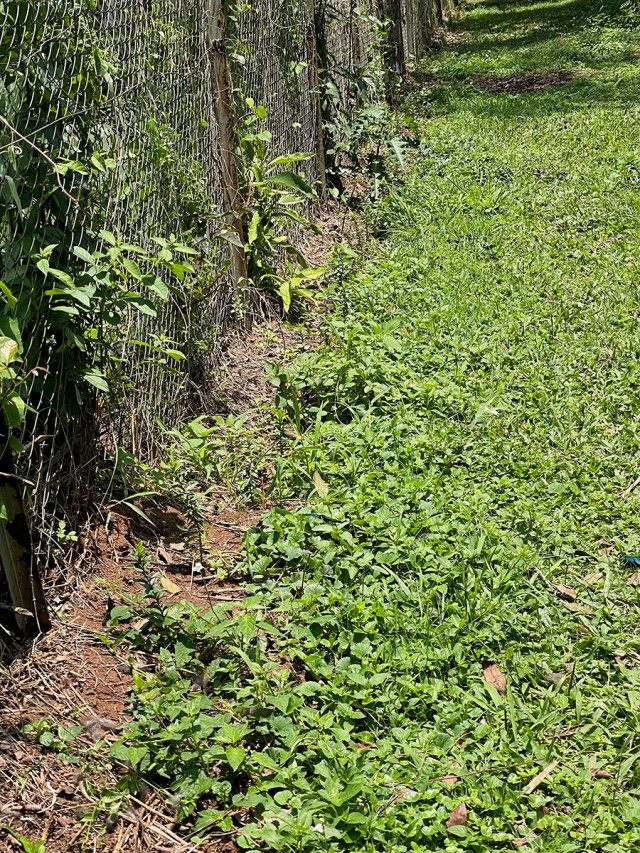
Our resident teenagers had cleared weeds and growth along that fence. Now we’ve planted about 3000 kei apple plants. These bushes have long thorns, and we will be tending them as they grow so that they intertwine with each other and the chain link fence to make a barrier that will be very difficult to get through. All we have to do is keep the weeds down as the plants become established and make sure the branches intertwine. We’re in the rainy season now which should make it easier for the plants as long as we keep ahead of the prolific growth of tropical weeds. I’m hoping my brown thumb works on the weeds rather than the kei apples.
Meanwhile, as trees were trimmed, residents hauled off the leftover branches and piled them in a couple of remote burn sites.
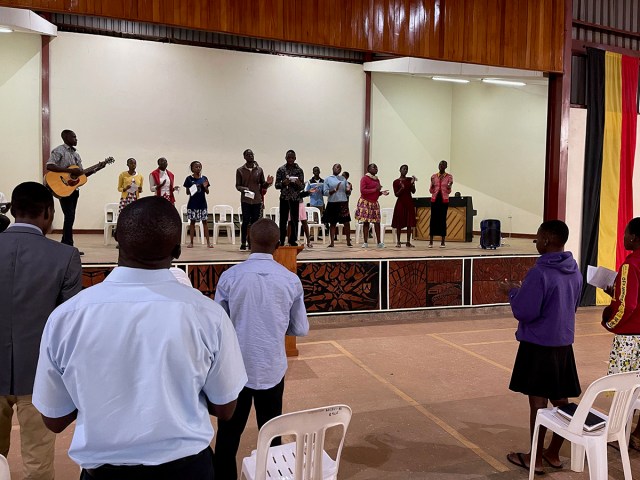
Home Office visits involve meetings with many church and school partners, national and local government officials and Rafiki supporters. Organizing those meetings is like herding cats — particularly with the uncertainties Covid creates in travel.
Michelle and Marion, the assistant RICE dean, spent hours preparing the RICE facility for meetings and a school exhibition. They cleaned curtains, seat cushions and more. The students came to help by thoroughly washing the auditorium. In fact, they used so much water that our water tanks ran dry.
Finally, though, all seemed to be ready.
And always waiting to waylay travel plans was the risk of a false positive COVID test and its ability to completely upset schedules.
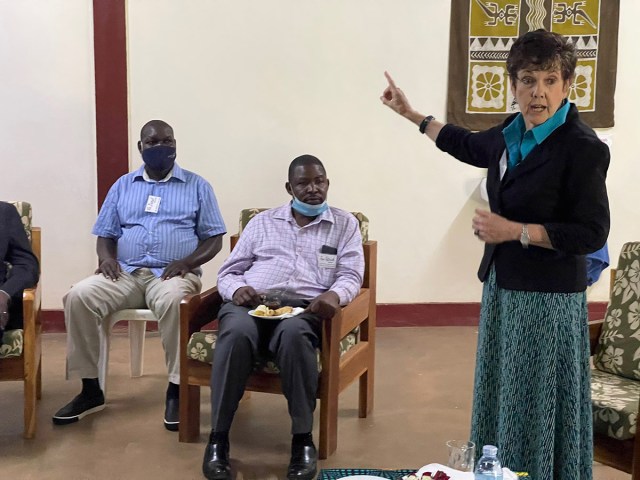
David met the three person team at the airport and escorted them back to the village. The next morning, we welcomed guests from our partner denominations, heard from our Executive Director, Karen Elliott, and the director of a school that is using the Rafiki curriculum as well as one of our head teachers. Our resident students prepared demonstrations in areas ranging from traditional crafts to robotics and performed music and speeches.
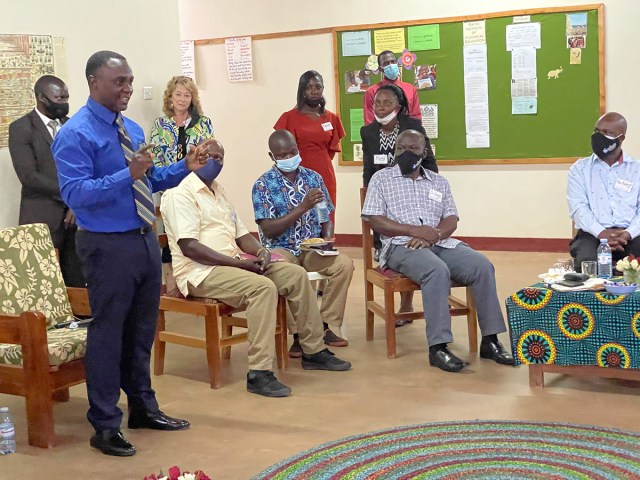
We then had a productive meeting with our university partners from Westminster Christian Institute Uganda, the result of which is that we are hard at work finalizing the curriculum to present to the Uganda National Council for Higher Education as the final step in having our campus grant college degrees in education. God willing we will have that done before the first of the year.
After an afternoon in meetings around the village, we concluded the day with a dinner with the HO staff and the national leaders of our village programs.
The next morning, David set out with Karen, Kelly Fore, and Chriz Ogen to meet with Stephen Kaziimba, the archbishop of the Anglican Church of Uganda which has over 11 million members. They plan to use the Rafiki Sunday School curriculum in many of their churches as soon as they are allowed to resume and are interested in using our school curriculum in diocesan schools when it has been approved by the government. Our meeting at the archbishop’s palace on Namirembe Hill was productive and encouraging as he indicated his support for continuing and strengthening our partnership.
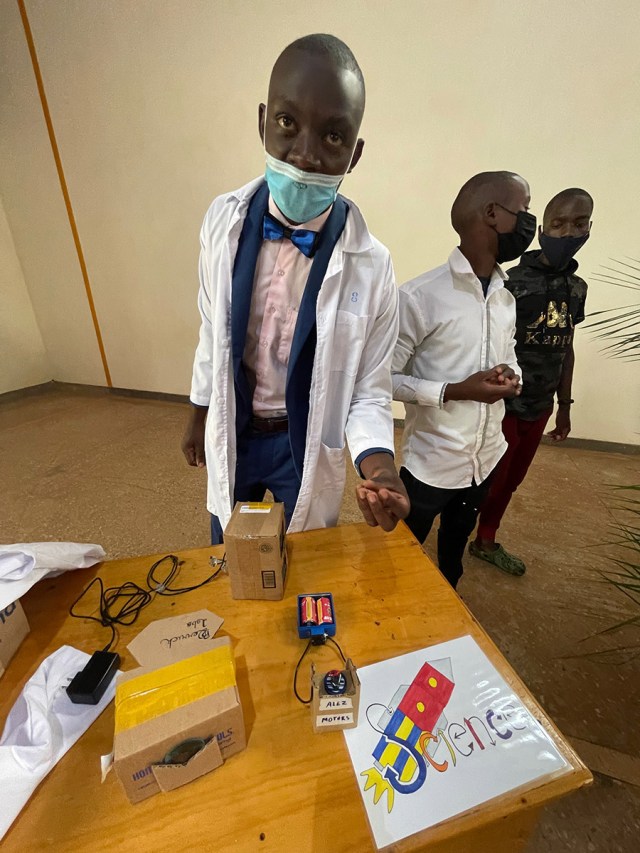
After a lunch meeting with the chairman of our local board, James Musoke, we headed for a meeting with Grace Baguma, director of the National Curriculum Development Centre, to work on getting the Rafiki preprimary through high school curriculum approved.
Previous efforts had met various roadblocks, but two things have now changed. First, many people have been praying that we will be able to find a way forward. Second, our students have now had outstanding results on the national examinations — somewhere in the top 10% of schools in Uganda. This is even more remarkable since many, if not most, of the schools in that category have students from wealthier families and select only top students. Our students are the ones God has sent us — and virtually all have their education here subsidized.
Evidently, there was skepticism among some at the NCDC that our classical Christian education was preparing students to succeed in Uganda, particularly on the national exams. We think the latest results conclusively prove that our curriculum works and that NCDC noticed.
The net result is that we are now working to review the entire curriculum with an NCDC committee with the goal of approval in time for the next academic year.
As that meeting was going on, travel plans changed again and we found we need to get Karen to the airport for the evening flight to Brussels. So Kelly drove the group back to the village — driving like a Ugandan — picked up Karen’s luggage and headed to the airport.
We got the other two team members off to Amsterdam the next day with far less drama. And so our first HO visit came to an end.
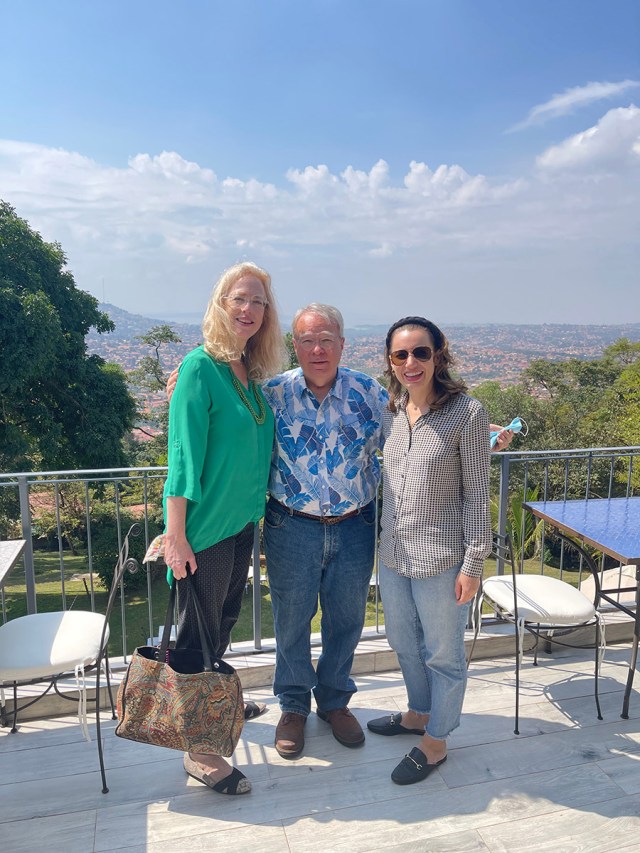
On Friday, we took a village holiday. We’d earned it.
The following Monday we were back to the routine, but, so far, the routine never seems to be completely routine.
For example, our generators. Normally we get our power from the grid, but we’re subject to random, unpredictable outages ranging from a few minutes to a few hours. We have two generators to cope with the outages: one is a three-phase generator that will power the entire village. The other is a smaller single-phase one that runs security lights and a few essentials when we don’t need to power everything. The only problem has been that the smaller generator will run, but we don’t always get it to generate any electricity.
Because of the lock down and the resulting backlog in service requests, we’d been unable to get our regular service man out to check things out. He finally made it out here, but has no experience with the smaller unit, so he recommended another company. They sent another guy who spent a couple of hours checking things out and came up with a potential solution. The only problem was that I’m pretty sure he gave us the muzungu price for those two hours of consultation (quoting in US dollars rather than Ugandan shillings was a clue). As a result, I don’t have a lot of confidence in his quote to “fix” our generator.
So I’ve been trying to educate myself on generators and our system. In the process, I’ve also learned that there is history behind everything here — and it pays to understand that before “solving” problems. No solution yet, but I’m learning things I didn’t expect to learn!

I’ve also learned that we don’t want monkeys on the property — they eat our crops and cause other problem around the village. This was not a problem anywhere that I worked in the states. So we currently have the monkey man coming five days a week with his dogs to chase them away. Over the next few weeks, the plan is that he will chase them out to an area of jungle near here and then chase them out of that even farther away. Hopefully, it will be some time before they come back.
That problem led us to clear the area of “jungle” we had in the swampy areas at the foot of our hill: monkeys (and black mambas) loved to hide in there. We are now about to plant 200 umbrella trees which should form a canopy that discourages undergrowth and shields us from the noise and dust of the Hoima Road.
The noise is early morning and late evening serenades from loudspeakers broadcasting news, sermons, diatribes, music and general racket. Alarm clocks are not really necessary here.
We’re making progress on our school curriculum approval, although not without a few hitches. We made an appointment to deliver a 500 page summary to the NCDC, and sent our pdf off to a local printer to make a hard copy and bind. Unfortunately, it arrived printed on card stock that made it too thick for the spiral binder — so they had jury-rigged it with a piece of wire. It was hard to open and there were little pieces of wire sticking out just waiting to slice open an unsuspecting appendage.
So, with two hours to go, we split it into three volumes, made new covers in-house and rebound. Kelly and Michelle instructed their driver to “drive like a Ugandan” and they made it in time.
Next hitch: the current revision of the entire curriculum (which the NCDC committee needs to review) is on a container and probably won’t be here until late this year. After a day spent investigating making and binding 200 volumes here, we found it was cheaper to have it shipped from Florida.
It’s all an adventure.
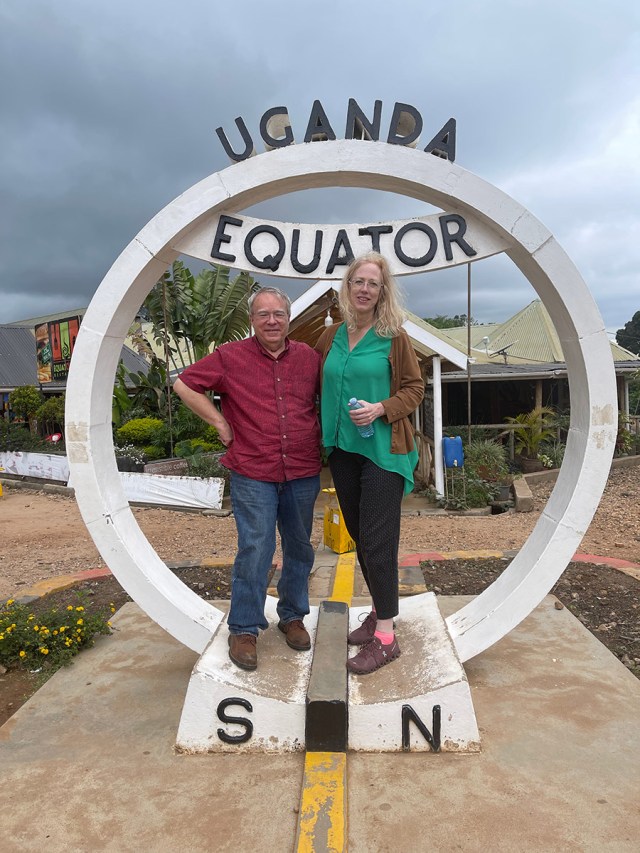
As we moved into September, rumors began to circulate that schools might be allowed to open towards the end of the month. We’re still not sure that will happen; however, this is normally the time that our residents go for a homestay with their extended families. It turned out that this was a good time for it and on Friday a week ago they all left for two weeks. It’s very quiet around here without them, but the homestays have really benefitted the students: they are establishing relationships with their families and learning what life will be like once they graduate from the village.
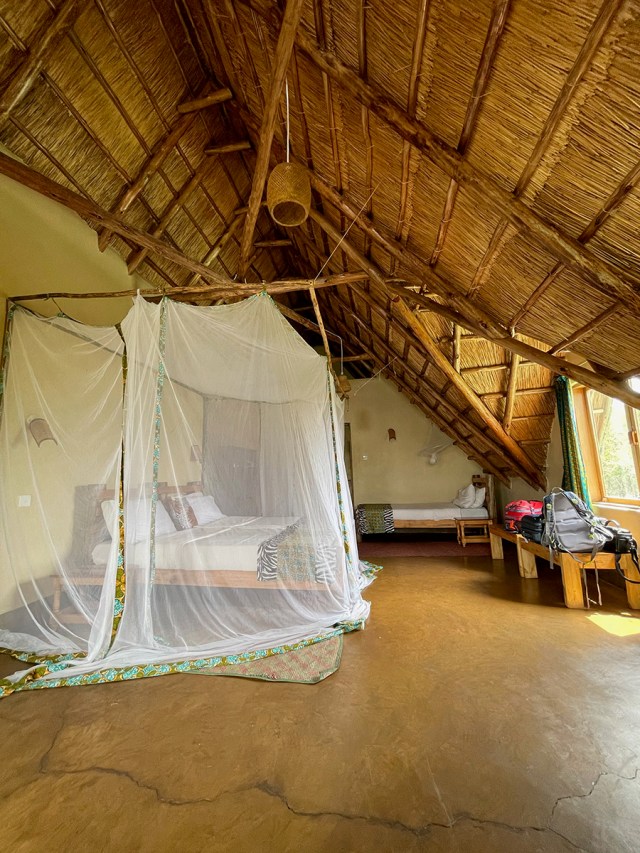
Michelle and I took advantage of the slightly slower pace to make our first venture upcountry. We travelled four hours to Lake Mburo National Park, crossing the equator on the way. We stayed just outside the park at Rwakobo Rock — a beautiful, hilltop lodge with thatched roof cottages and a large, open air lobby/dining room overlooking the surrounding countryside.
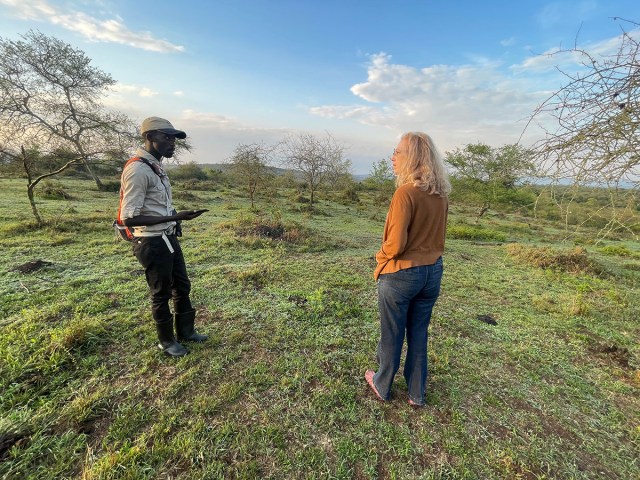
We took an early morning bird walk with Isaac, their expert guide, seeing (and hearing) 30 different species of birds, plus zebras, baboons, dwarf mongooses (or is it mongeese?), impala, and Ankole cattle (the local breed with enormous horns. And Isaac told us about the importance of the cattle to the local Buhima people. They are a source of wealth so they’re usually not slaughtered but instead provide milk and blood for nutrition. Traditionally Buhima marriages were arranged by the parents with the dowry paid in cattle. The bride did not see her husband until the wedding day — and then spent four months isolated with her new family being fed a diet of milk — and lots of it.
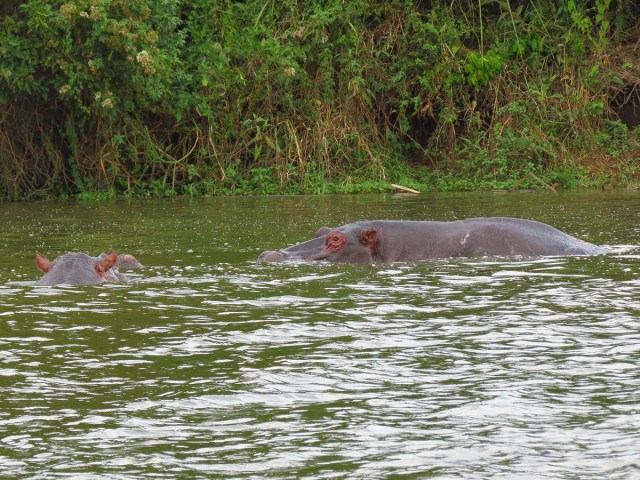
Later in the day we bounced over the roads into the park past more exotic wildlife to Lake Mburo. We took the evening nature boat ride, seeing hippos mating, crocodiles, water buffalo and more birds, including the magnificent fish eagle (which is similar in appearance to the bald eagle) and an African fin foot. The possibility of sighting the latter brings many birders to the park — but getting to see one is often difficult because they hide in dense vegetation and are quite shy. Ours looked like he wanted to be seen.

We spent another night at the lodge — enjoying the quiet and the dark with millions of stars and the milky way.
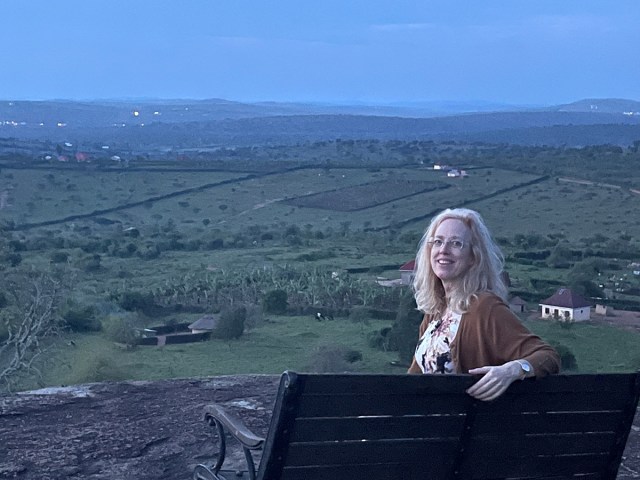
Now we’re back at what is beginning to feel like home waiting to see what we learn next.
We’re deeply thankful to those of you who are supporting our mission through prayer and financially. We are amazed each day at how God is using the Rafiki Foundation to bring classical Christian education and Bible study to Africa — and the world. Spending time with the resident students and the faculty demonstrates the amazing way lives are being transformed. It’s a privilege being a part of this mission.
If you’d like more information on how to support Rafiki and our mission, please go to: https://rafikifoundation.org/missionary/michelle-and-david-graves-252


